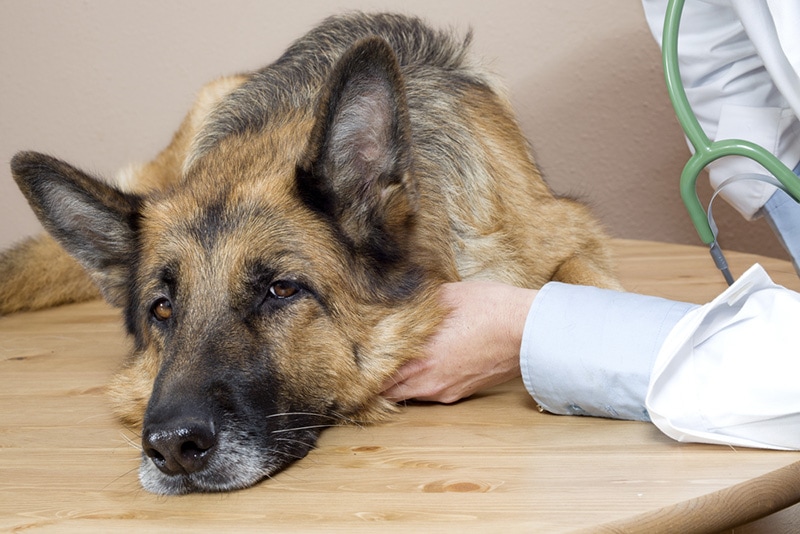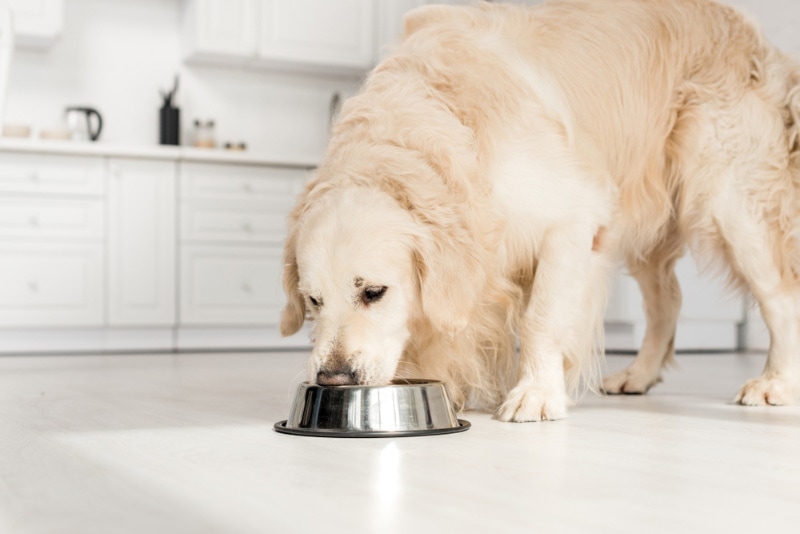
Click to Skip Ahead
Welcome to the world of pet ownership, where your dog eats things that you’re unsure are safe for them. One such thing your dog sneaks a bite of might be pineapples. So, can dogs eat pineapples? The short answer is yes, dogs can eat pineapples, and they can even be a beneficial part of their diet in moderation. However, as with all foods that aren’t made for dogs, there are considerations to keep in mind. Let’s delve deeper into understanding the relationship between dogs and pineapples.
Pineapple: An Occasional Tropical Treat for Dogs
Pineapples, the spiky-skinned, tropical fruit, are not just a sweet treat for humans but can also be beneficial for our canine companions. However, as with any other food item, they should be given in moderation and prepared properly to ensure your dog reaps the benefits without any adverse effects.
Nutritional Content of Pineapples

Pineapples are a powerhouse of vital nutrients that can contribute to your dog’s overall health. They contain Vitamin A which is important for visual health. Vitamin B6, is an essential nutrient found in pineapples, it plays a critical role in brain development and function, and helps the body make the hormones serotonin and norepinephrine, which influence mood, and melatonin, which helps regulate the body clock.
Moreover, this tropical fruit is a good source of fiber, promoting digestive health by helping to regulate bowel movements and maintaining a healthy weight. Pineapples also contain manganese, an essential mineral required for building strong bones and connective tissues.
Potential Health Benefits for Dogs
Feeding your dog small amounts of pineapple can have several health benefits. The high vitamin content can help boost your dog’s immunity, keeping them healthier and more resistant to various diseases. The fiber aids in digestion, helping to prevent constipation and maintain a healthy digestive tract.
In addition to these, the natural sweetness of pineapples provides a healthier alternative to store-bought treats that often contain artificial sweeteners or excess sugar.
Risks Involved With Pineapples for Dogs

As beneficial as pineapples can be for dogs, there are potential risks involved if consumed in large quantities.
Due to their high sugar content, excessive consumption can lead to obesity and dental issues over time. Furthermore, it can cause digestive upset including diarrhea and stomach ache if overfed.
The hard central core and the tough, spiky skin of the pineapple are indigestible and pose a choking hazard, so they should always be removed before feeding pineapple to your dog.
Lastly, like any food, some dogs may be allergic to pineapples although this is rare in dogs. If it’s your dog’s first time trying pineapple, start with a small amount and watch closely for any signs of an adverse reaction such as itching, swelling, difficulty breathing, or other unusual behaviors.
Feeding Pineapple to Your Dog: The Right Way
While pineapples can certainly be a safe treat for your dog, it’s crucial to serve them in a way that is safe and healthy for your furry friend. Here’s how to do it right.
Fresh vs. Canned Pineapple

When it comes to feeding your dog pineapple, fresh is always the best option. Fresh pineapple doesn’t contain any added sugars or preservatives, making it a healthier choice. Canned pineapple, on the other hand, often contains syrup or added sugar, which can lead to obesity and other health problems in dogs.
Serving Size and Frequency
Pineapple should be seen as a treat and not a meal replacement. It’s recommended to limit your dog’s intake of pineapple to only a few small pieces at a time once a week. As a guideline, treats should make up no more than 10% of your dog’s daily caloric intake. This ensures that your dog is getting the majority of their nutrients from their main diet, which should consist primarily of high-quality commercial dog food or a veterinary nutritionist formulated homemade diet.
Preparing Pineapple for Dogs
The way you prepare pineapple for your dog is important for their safety and enjoyment. First, always remove the tough outer skin and the crown, as these parts are not digestible and may cause choking or intestinal blockage. Also, the core of the pineapple is quite hard and could be a choking hazard, so it’s best to remove this part as well. Cut the remaining fruit into bite-sized pieces appropriate for your dog’s size. Always supervise your dog while they’re enjoying this tropical treat to ensure they’re chewing and swallowing safely.
Remember, every dog is unique and may react differently to new foods. Always monitor your dog after introducing pineapple into their diet and consult with a veterinarian if you have any concerns.
Understanding Dog Nutrition

Dogs are often mislabeled as carnivores when they are actually omnivores or facultative carnivores. This means they need both meat and plant-based foods. Dogs require a balanced diet of proteins, fats, carbohydrates, vitamins, and minerals to stay healthy. While meat should make up the bulk of their diet, fruits and vegetables can provide essential nutrients.
Many pet owners may wonder about the role of fruits in a dog’s diet. After all, dogs are primarily meat-eaters. However, fruits can play a part in providing a balanced diet for your furry friend, provided that the fruits are safe for dogs. Fruits contain important nutrients that can contribute to your dog’s overall health. Notably, they are rich sources of vitamins, fiber, and antioxidants.
Vitamins
Fruits are high in a variety of vitamins. For instance, pineapples are rich in vitamin A, which can help with vision, and vitamin B6, necessary for brain development and function. These vitamins are crucial for maintaining your dog’s health, supporting their immune system, and ensuring proper functioning of their bodily processes.

Fiber
Fruits are also excellent sources of dietary fiber. Fiber aids digestion by adding bulk to the stool, which helps maintain regular bowel movements. It can also help manage your dog’s weight by making them feel fuller, preventing overeating.
Antioxidants
Antioxidants are compounds that help protect the body from damage by free radicals, harmful molecules that can lead to cell damage and contribute to aging and diseases. Fruits like blueberries and raspberries are high in antioxidants, which can help boost your dog’s health.
Tips for a Healthy Dog Diet

Conclusion
In the realm of dog diets, pineapples can indeed be a sweet treat for your furry friends. As with all foods, moderation is key. Ensuring a balanced diet filled with necessary proteins, carbohydrates, and a mix of fruits and vegetables will keep your dog’s tail wagging. So if they stole some pineapple or are begging to share, a little fresh pineapple is safe to have.
Featured Image Credit: New Africa, Shutterstock









